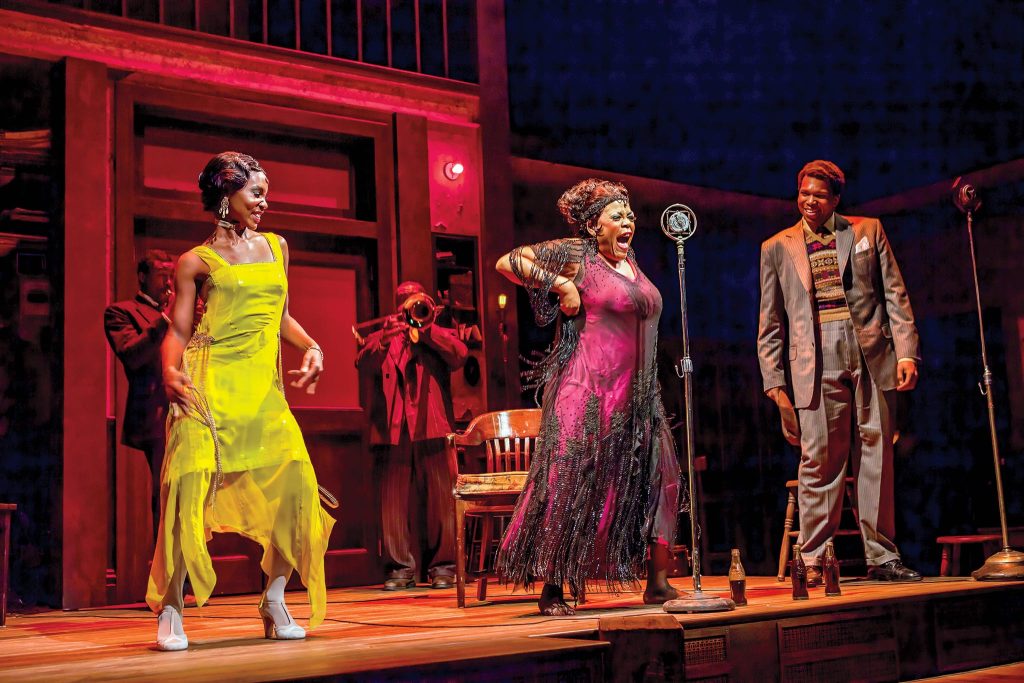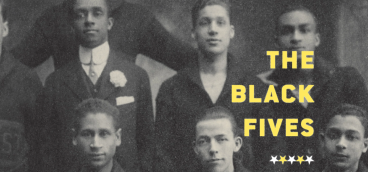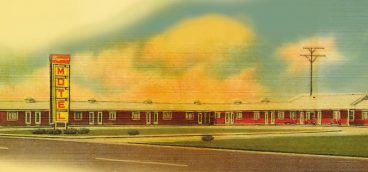His Father’s Son

For the first 37 years following his 1945 birth, August Wilson was a Pittsburgh nobody, abandoned by his white German father, Frederick August Kittel, and disdained by his black mother, Daisy Wilson, once he dropped out of school in the ninth grade.
Self-educated thanks to thousands of hours spent in multiple Carnegie Library branches, Freddy Kittel Jr. — only at age 20 did he adopt “August Wilson” as his name — enlisted in and washed out of the U. S. Army in his late teens and spent a year in Los Angeles before returning to Pittsburgh. Fashioning himself a poet and working various odd jobs while living in a series of Hill District boarding houses, Wilson pursued a seemingly aimless existence, his only close friends being a trio of fellow Hill wannabe poets. Arrested for breaking into his own lodgings after falling behind on the rent, Wilson spent three days in jail before recouping his typewriter and records collection, his only worldly possessions beyond his clothes.
When Kittel Sr., a tempestuous alcoholic, died in 1965, Wilson penned “Poem for the Old Man,” recounting how “Old Fritz, when young, could lay a harem.” Some of Wilson’s siblings shared Kittel as their father; others didn’t, but Wilson’s alienation from his mother was as powerful a presence in his young adulthood as his father’s absence. “She told him he was no good, that he would amount to nothing,” his sister Linda Jean later recounted to John Lahr of The New Yorker, and Wilson himself concurred: “She thought I was a failure.”
Wilson, however, quietly maintained a firm self-confidence. “The thing that sustained me was that my idea of myself was different from the idea that society, my mother, and even some of my friends had of me. I saw myself as a grand person,” he told Lahr. Then he experienced an epiphany thanks to purchasing a used record by the black blues artist Bessie Smith, which he listened to over and over. “It made me look at the world differently. It gave the people in the rooming house where I lived, and also my mother, a history I didn’t know they had,” Wilson explained. “It was the beginning of my consciousness that I was the representative of a culture and the carrier of some very valuable antecedents,” he added, for “the blues gave me a firm and secure ground . . . the wellspring of my art.”
Come summer 1969, Wilson’s 18-year-old girlfriend Brenda Burton became pregnant, and a quick marriage preceded by six months the early 1970 birth of their daughter Sakina Ansari. Burton, an active member of the Nation of Islam, was no happier with Wilson’s approach to life than was his mother, and in 1972, “she moved out with the baby,” Linda Jean told Lahr. “August came home to an empty house. The shock and pain were unbearable to him. In a nutshell, she thought his writing was a waste of time, [that] he wouldn’t amount to anything.”
Throughout the early- and mid-1970s Wilson shifted his focus from poetry to playwriting, influenced by a newly arrived good friend, Claude Purdy, whose theatrical experience spanned the globe. In 1977, Purdy showed Wilson a copy of The Art of Romare Bearden: The Prevalence of Ritual, a richly illustrated 1973 coffee-table book, and for Wilson, seeing it was akin to first hearing Bessie Smith: “What I saw was black life presented on its own terms, on a grand and epic scale, with all its richness and fullness, in a language that was vibrant and which, made attendant to everyday life, ennobled it, affirmed its value, and exalted its presence. . . . My response was visceral. I was looking at myself in ways I hadn’t thought before and have never ceased to think of since.”

Joniece Abbott-Pratt, Yvette Freeman, and Corey Allen in The Huntington Threatre Group production of August Wilson’s Ma Rainey’s Black Bottom.
Image: T. Charles Erickson, The Huntington Theatre Group
By early 1978, Purdy was in the process of relocating to St. Paul, Minnesota, and Wilson tentatively made the decision to join him. “I have this sort of love-hate relationship with Pittsburgh,” he later wrote. “This is my home and at times I miss it and find it tremendously exciting, and other times I want to catch the first thing out that has wheels.” In St. Paul, Wilson met Judy Oliver, a white social worker, and within weeks he moved in with her. Thanks to Purdy’s girlfriend, Wilson secured his first full-time salaried job, at age 34, at the Science Museum of Minnesota, though he focused virtually all his energies on writing and refining a small handful of plays. Time and again he submitted one or another to the annual competition at the Eugene O’Neill Theater Center in Connecticut, only to be rejected. In the spring of 1981, he legally changed his name to August Wilson and he and Oliver wed a few weeks later.
One year later, on his sixth try, Wilson’s proposal to develop a play titled Ma Rainey’s Black Bottom was accepted by the O’Neill, which former theater critic Patti Hartigan, in her excellent and deeply informative new biography, calls “the gold standard, the entrée into professional theater circles.” The summer event at the O’Neill was overseen by Lloyd Richards, the African American dean of the Yale School of Drama but best-known as the director of the last black American play to be a Broadway success: Lorraine Hansberry’s A Raisin in the Sun, 23 years earlier.
Richards “was looking for a fresh Black voice,” Hartigan writes, and another playwright who was there alongside Wilson told Hartigan that “it was obvious that he was Lloyd’s pet.” Wilson himself later told writer friend Charles Johnson how Richards had pulled him aside to say, “You are the one I was looking for.” By late July, Ma Rainey was ready for its debut performance, one to which New York critics were invited with the understanding that the under-development productions were still far from their final form. Among them was 33-year-old Frank Rich of the New York Times, and on Aug. 1, the cover of the Times’ Sunday Arts and Leisure section was a long feature titled, “Where Writers Mold the Future of the Theater.” Rich praised three plays he had seen at the O’Neill, but his most striking comments were about Wilson. “I was electrified by the sound of this author’s voice,” Rich wrote, highlighting how Wilson utilized “the beauty and meaning of torrents of words.” And Rich went so far as to compare Wilson to the legendary O’Neill himself, saying “he works in the same poetic tradition as the man who inspired the O’Neill Center’s mission and who gave American theater its past.”
Hartigan rightly emphasizes how Rich’s prominent praise of Wilson “launched his career,” and a few months later Wilson was awarded a seven-year residency at Manhattan’s New Dramatists, allowing him to effectively relocate from St. Paul to the West Side, where he adopted the decidedly modest Hotel Edison on West 47th Street as his New York home. Ma Rainey opened at Lloyd Richards’ Yale Repertory Theatre in April 1984, and Frank Rich again lauded its author in the Times, stating that “Mr. Wilson is a major find for the American theater.” Six months later, still under Richards’ direction, Ma Rainey opened on Broadway.
Hartigan’s Wilson is expressly a biography of the man, not a textual analysis or exegesis of his plays, but she correctly observes how Ma Rainey’s “plot is less important than the monologues that interrupt the action,” for “that is where Wilson’s writing sings.” Wilson took “the rituals and customs of ordinary Black people and raised them to mythic proportions,” and in Ma Rainey Wilson’s “poetic monologues overshadowed the play’s weaknesses in structure and plot.”
Wilson’s second major play, Fences, debuted at Yale Rep in May 1985, but Wilson was spending most of his time in Manhattan and virtually none with his wife in St. Paul. “Wilson hadn’t been home for seventy-three days,” Hartigan observes about summer 1985, and she tastefully but properly observes that Wilson was rarely lacking in female companionship. “Wilson’s serial infidelity was well known among theater professionals,” she writes, citing multiple interviews, and only in an endnote does she add that “as far as the author could tell, all of the affairs were consensual.”
Fences opened on Broadway on March 26, 1987, and three weeks later it was awarded the Pulitzer Prize for drama. That earned Fences a front page New York Times headline — “Story of Black Life in 1950’s Captures Pulitzer for Drama” — and while Wilson was almost equally excited that the Pulitzer for poetry had gone to a 34-year-old black woman, Rita Dove, the Times instead paired his achievement with that of a historian a year younger than Dove:
A play about black American life on the eve of the civil rights movement, August Wilson’s “Fences,” and a biography of the man who led that movement, “Bearing the Cross: Martin Luther King Jr. and the Southern Christian Leadership Conference” by David J. Garrow, won Pulitzer Prizes yesterday. Mr. Wilson is a self-educated ninth grade dropout. Mr. Garrow is a professor and scholar.
Despite such a landmark achievement, all was not well in Wilson’s professional or personal life, for significant tensions had developed between him and Lloyd Richards. Wilson’s third play, Joe Turner’s Come and Gone, had debuted at Yale Rep a year earlier under Richards’ direction, and would open on Broadway in early 1988, but even prior to Fences’ Pulitzer, Richards was increasingly unhappy at playing second fiddle to the far younger man, whom he viewed as his protégé. “There is not anyone that I am aware of who could or would have realized his potential and that of his work in the way that our collaboration has done,” Richards wrote to his own lawyer during awkward tussles about his remuneration from such highly successful productions. The financial disagreements were papered over for a time, and Richards would continue helping to develop Wilson’s subsequent plays until a complete breach in the relationship several years later.
The coming apart with Richards was the watershed event in Wilson’s professional life, for as the actor Charles S. Dutton, who had starred as Levee in Ma Rainey forcefully declared, “If it wasn’t for Lloyd, there would have been no August.” Hartigan firmly concurs. “Dutton was right: Wilson was working as a cook and writing in restaurants before Richards nurtured him,” and later it would be obvious to everyone that “Wilson’s plays were weaker without Richards directing.”

Patti Hartigan
Simon & Schuster, $32.50
Yet publicly there was no question that Fences, “more than Ma Rainey, established Wilson as the voice of African American theater of his generation.” Joe Turner’s Come and Gone opened on Broadway in early 1988, and “Wilson would later say that he wished he had won the Pulitzer . . . for Joe Turner, not Fences,” Hartigan writes, for Fences “was his least favorite of all of his plays.” Wilson’s fourth play, The Piano Lesson, would earn him a second Pulitzer Prize in 1990, even before it arrived on Broadway, but his newfound public fame masked personal unhappiness that went beyond his tensions with Richards. In July 1990, Wilson issued a public statement that he and Judy Oliver were divorcing, and he rightly confessed that “I was never there for her,” notwithstanding how Oliver, as Hartigan tartly observes, consistently had been “a pillar of support for Wilson’s work.”
Well before 1990, Wilson had become involved with a Yale School of Drama student 14 years his junior, Colombian-born Constanza Romero, who served as costume designer for The Piano Lesson. They were already in the process of moving to Seattle when Wilson’s divorce from Oliver was announced, and in 1994 they wed. Three years later, Romero gave birth to Wilson’s second daughter, Azula Carmen, but Wilson continued to spend so little time at his ostensible home that “he rarely saw his toddler,” who by age 3 had taken to calling her absent father “the slippery guy.”
In early 1997, the prominent African American commentator Henry Louis Gates wrote in The New Yorker that Wilson “neither looks nor sounds typically Black — had he the desire he could easily pass — and that makes him Black first and foremost by self-identification.” Wilson would defensively tell interviewers who asked about his biracial background that “the culture I learned in my mother’s household was black,” but Gates raised publicly an issue that had troubled Wilson ever since childhood. Several years later, his young adult Hill friend Chawley Williams would tell The New Yorker’s John Lahr that “August wasn’t really Black. He was half-and-half. He was too dark to be white, and he was too white to be dark. He was in no-man’s land. I knew he was lost.”
Famed actor James Earl Jones, who as the star of Fences had found himself in the middle of the unpleasant tensions between Wilson, Lloyd Richards, and general manager Robert Kamlot, put it much more bluntly to Hartigan: “August didn’t like white men, including our producers. He didn’t like his father, and his father was white. I don’t think he ever came to terms with that. He certainly didn’t in his writing,” where white characters were never more than implicit, off-stage presences.
Jones adored his role in Fences, but not its author. “I didn’t like him. The doors were shut. You couldn’t get in. I only knew the black August Wilson. I would like to have known the white August Wilson. He fought desperately to keep it at bay. He is genetically a white man as well as a black man, and he did the best job of any artist I know of keeping them separate.”
Jones and Lloyd Richards shared an agent, Lucy Kroll, and when Wilson and Richards’ break became total, Kroll’s verdict on Wilson mirrored Jones’s. “There is something in August’s life that he does not wish to confront and he is angry and has not found the answers.” Wilson’s history of white paternal abandonment was a recurring concern for his closest friends, who linked Wilson’s proclivity for violent fits of temper to long-dead Fritz Kittel. “It was more than bitter,” fellow playwright James Yoshimura, who became close to Wilson at the O’Neill, told Hartigan. “There was something very psychically wounded there.”
When The New Yorker’s John Lahr authored a lengthy, deeply insightful profile of Wilson in 2001, the issue of how “Wilson inherited his father’s volatile temperament” tracked the entire course of his life. Wilson’s once closest Hill friend, poet and Pitt professor Rob Penny, recalled for Lahr how “when he got emotional, he was mad scary.” Constanza Romero volunteered the same observation — “His temper scared me” — in a breathtakingly frank interview with Lahr. “I’ve been married before. He’s never asked me a single question about that,” she said of her usually absent husband. “What is it I mean to him, if I’m not a complete person with history, with wants, with needs?”
Romero was clearly unhappy with life as a single mother. “It’s been hard. I don’t get the love from him that all of me would like. I don’t have a partner through the little things in life. He just doesn’t reach that intimate part of everyday life,” she told Lahr. “He’s a mystery to me in many ways.”
Hartigan’s indefatigable research unearths multiple instances of how Wilson could fly into a violent rage over seemingly minor slights, and she reports how “his closest friends often found themselves intervening to save Wilson from himself” and perhaps another trip to a local jail. Despite his remarkable professional success and celebrity, Wilson was not happy with where life had taken him, and Hartigan writes that he “sensed — accurately — that some of his oldest friends in Pittsburgh resented his success” and how he had failed to keep up old ties. Wilson “felt alienated and isolated, a victim of his own success,” someone who had made an unforgivable error that several of his plays’ most powerful characters had warned against: He had lost touch with his own roots.
In March 2003, Rob Penny died of a heart attack at age 62. Wilson returned to Pittsburgh for Penny’s funeral, only to learn, as his brother Richard confirmed to Hartigan, that “Penny’s family wanted him to know that everyone was welcome to speak at the funeral except him. Wilson was crushed.” She understandably observes that Wilson “hadn’t expected to pay such a high, personal price” for his success, and his wife witnessed that too. “Romero noticed that all the joy seemed to have been sucked out of the process of writing, and he took any opportunity to avoid the task.”
In mid-June 2005, Wilson was diagnosed with inoperable liver cancer. Doctors gave him five months to live, but he didn’t last even four, dying on Oct. 2 at just age 60. Patti Hartigan’s verdict on the importance of Wilson’s plays is commendatory and unsurprising. Wilson was “a truth teller . . . who accurately described the ordinary lives of honorable people whose stories were ignored by the mainstream culture,” someone who “saw the dignity in people who were invisible to others.” His “lifework was to assert that Black culture is unique and worthy of art,” and in particular, Joe Turner’s Come and Gone is Wilson’s “indisputable masterpiece, one of the greatest American plays of the twentieth century.”
August Wilson: A Life has been universally praised in both major newspapers and the theatrical press. In the Wall Street Journal, Isaac Butler applauded Hartigan’s “painstaking research, stylistic verve, and an eye both admiring and exacting.” Her “masterful,” indeed “epic account,” is “narrated brilliantly.” Los Angeles Times theater critic Charles McNulty called Wilson “magnificent,” “invaluable and highly absorbing.” In American Theater, Nathaniel G. Nesmith commended it as “riveting,” while noting that Wilson himself was both “gifted and flawed,” a theme that Dwight Garner highlighted in the New York Times. Wilson was “the most important and successful playwright of the late 20th century,” but also “a complicated man” who was “a lifelong womanizer, a sexual locavore.”
There is no question that Hartigan’s biography diminishes the human being whom I met briefly at the Pulitzer ceremony in 1987, for it is beyond question that Wilson was a horrible father and a worse husband. But as the LA Times’ McNulty crucially emphasized, “Wilson’s work lives on powerfully and prolifically,” and in so doing, it establishes the most essential truth about anyone who writes, or paints, or composes; namely that it is our works, which will outlive all of us by decades and perhaps centuries, that give everlasting meaning to our identities as distinct from our inescapably flawed human lives.
















